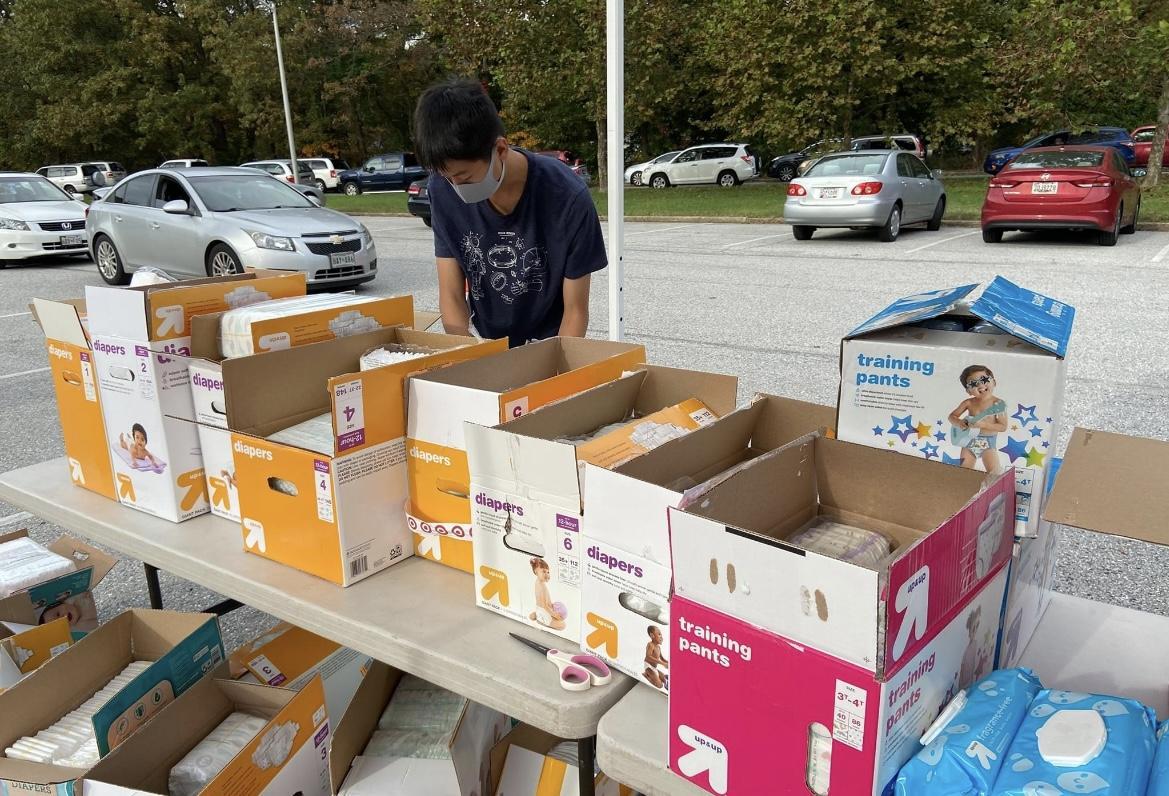Project Summary: Describe your initiative in one sentence
Fighting Diaper Poverty through mass diaper distribution and lobbying to remove baby diaper taxes across the United States.
When did you start your project?
05/20
Focus area: What topic does your project most directly relate to?
Societal Solutions for a Changing World – Your work or innovation is creating an equitable and sustainable community that works for the good of all. This could be working on environmental, racial justice, or education issues.
Sectors/Themes: What topics does your project most directly relate to?
Health
If you chose "other," please indicate your answer here:
Website URL(s) or social media handles
What was the "Aha!" moment that led you to get started and see the potential for this to succeed?
When the pandemic started, we transitioned from an indoor food pantry to bi-weekly outdoor pop-up pantries. As we talked to young families, every parent asked for diapers for their babies. They told us food was readily available at food pantries, but they couldn't find diapers. Also, to make matters worse, diapers are not covered by any government program. The pandemic had a terrible economic impact on families. Costs for diapers grew by 25% throughout the pandemic and we wanted to find a way to meet their immediate needs and also tackle diaper poverty on a systemic level.
What problem are you helping to solve, why is tackling this issue important to you, and why does solving it matter for your community?
Diaper poverty is known as the invisible public health crisis. A baby will go through 2,000 diapers a year. Each case of diapers costs $50 and lasts one to two weeks. Yet, no government assistance programs cover the cost of diapers. Parents are left with unsanitary measures like using paper towels or leaving children in soiled diapers. Not having sufficient diapers can mean the inability to go to daycare because childcare facilities require a supply of diapers for each child. In the long run, this leads to missed time at work. Tackling diaper poverty in our community means giving families a chance to keep kids in daycares, the ability to go to work, and providing enough financial margin to get through the week.
How are you tackling the problem? Share your specific approach.
We have bi-weekly pop-up pantries at local elementary schools in areas of need. With our community partners, we have been able to distribute over 200,000 diapers, 100,000 feminine hygiene products, and over 500,000 pounds of food. By meeting families' immediate needs, we are giving them enough financial margin to make it through each week.
On a systemic level, we decided to fight baby diaper taxes in our state. We were one of the few states that didn't tax adult diapers, but continued to tax baby diapers. We lobbied our state senator and she agreed to be the lead on the bill. She invited us to provide written and oral testimony for the bill to remove the baby diaper tax. Based on our efforts and the support of so many people, our governor signed it into law last July saving families $12 million a year. There are still 29 states that tax baby diapers. Our next goal is to lobby each of these states to remove the baby diaper tax and to systematically fight diaper poverty level on a national level.
How have you set your project up for success?
Our pop-up pantries are supported through financial donations, state grants, and community partners. Together, we are financially sound and can continue our pop-up pantries into 2028. More importantly, our nationwide effort to fight diaper poverty by eliminating diaper taxes is going strong. We have teams of young people in each of the 29 states that still have diaper taxes. They are using the same lobbying blueprint we used to convince their state politicians to sponsor bills to eliminate baby diaper taxes in their states.
How has your solution inspired those most affected by the problem to act, or influenced others to create their own solutions to the issue you are addressing? How have you led others to take action in the community around you?
Our efforts to fight diaper poverty have inspired hundreds of young people to come out and volunteer. Our pop-up pantries primarily focus on getting young people involved in community service. Every week when we meet, we have children as young as five years old join us. It also has inspired teenagers around the country to help us fight diaper poverty by lobbying their state politicians to eliminate the baby diaper tax.
